
Do you have what you need to make your garden grow?


Garden Center
Store Hours
Mon-Sat:
7:00am - 9:00pm
Sun:
8:00am - 8:00pm
Curbside:
09:00am - 6:00pm
Location
Popular at Your Garden Center
Trending Garden Supplies in May
Trending Live Plants
Garden Project Calculators
;Resize=(703,395.44))
Grass Seed Calculator
When you're ready to seed your lawn, our calculator helps you estimate the amount of grass seed you'll need to get the job done.
;Resize=(703,395.44))
Mulch Calculator
Enter your preferred material, the square footage and mulch depth of the coverage space for accurate results.
;Resize=(703,395.44))
Fencing Calculator
We'll calculate the amount of fencing you should purchase based on your property needs.
Shop Outdoor and Garden Brands
Frequently Asked Questions About Gardening
What's my planting zone?
Check the USDA plant hardiness zone map, as planting zones have shifted over the years. Zones with higher numbers can plant earlier in the year. Increase your odds of successful gardening by choosing plants that are meant for your zone.
Can I plant seeds directly in the ground?
If the soil is pliable and warm, consider planting your flower, fruit, or veggie seeds directly into your garden. This is called the "direct sow" method. Plant after the threat of frost is gone for the season, as seedlings and sprouts can't weather those conditions. You can also start your seeds indoors if you'd like. Consult your seed package for how and when to sow seeds.
How do I plant fruit seeds?
Follow the directions on your seed packet. It'll tell you when to start them indoors and when to plant them outside. Generally, you'll add several seeds per planting hole, then press them into the soil as directed. Mark where you buried the seeds with a toothpick, flag, or twig so you don't accidentally confuse them with weeds later.
Should I harden off my seedlings before planting them outside?
Yes, if you raised plants indoors from seeds in your own plant nursery, harden them first before you transplant them. Hardening allows your seedlings to adjust to the great outdoors and rain, sun, and temperature swings, making them more resilient against cold snaps. It slows their growth until they're strong and ready to take off during a spring warm front.
How do I prepare for planting transplants or seeds outside?
Before you plant, make sure that it's warm enough outside, your plant will have the right amount of sun, and the soil is healthy. Check your seed packet to see if it likes shade, full sun, or partial sun, as well as what time of year it should be planted. Space your plants as described for best results so your plant babies have room to grow big and strong.
Should I use peat moss starters or coir starters?
Seed starters, full of nutrients in convenient pellets or pots, work for new and experienced gardeners alike. You don't have to use these starters if you're planting in soil, but you may want to. Starting seeds in peat pots works best for delicately rooted plants like cucumbers and eggplant, as well as flowers that require an acidic pH. Some people prefer coir starters instead, as they have a neutral pH. Check what type of soil your plants need to help narrow it down, and chat with a garden center associate if you need more info.
Garden Project Ideas
The Home Depot Garden Center at Hartwell, GA
Set Up For Springtime
It's time to start thinking of spring. Sweep out the gazebo and clean the shed to prepare for warmer temperatures, fragrant breezes, and sprouts poking up out of the ground. Planting seeds indoors means you'll be ready to transplant young veggie plants and spring flowers when the ground thaws and the frosts are through. You might even want to sow organic seeds directly into the earth. What better way to start than by exploring your favorite local plant nursery, The Home Depot Hartwell, GA Garden Center?
Plant Hardiness Zones Explained
The first thing you should know when planting spring flowers, veggies, and other seeds is your planting zone. Every location in the U.S. and its territories is sorted by climate. Find your zone on the USDA zone map and learn when to plant seeds.
For example, you could plant bell pepper seedlings outdoors in mid-March in Zone 10, but not until the end of May in Zone 4. For best results, choose plants in your zone number or less. In other words, a Zone 7 garden can support plants listed as Zones 1–7. The timeframe to direct sow outdoors in your garden is often around a month later than the indoor start date. Read your seed packet for details. If you start seeds later than recommended, it's not ideal, but it will likely even out as time passes.
Gardening in Your Growing Zone
The Mid-South is in Zones 7–9, with coastal regions being warmest and the zone number decreasing to an 8, then a 7 as you go up in elevation to the foothills of the Georgia mountains. Just check your planting zone, then consult the seed packet for the most accurate instructions for each plant. If you know you're in a micro-climate near a wetland, valley, or lake, zoom in on the USDA planting map for exact details down to street level.
In balmy Zone 9 on the coast, you can begin planning and planting indoors in January if you'd like. Zones 8 and 7 generally have a slightly later recommendation for indoor starts. Cruciferous veggies and garden favorites, like cucumbers, peppers, and tomatoes, all do well when started inside your home. Greens like spinach, artichokes, and fragrant herbs, including oregano, basil, and parsley, also don't mind an early beginning. You can sow flower seeds and watch them mature under the grow lights, too. Whatever you choose to grow, tend them carefully and transplant them after the last frost.
Plant Seeds Outside With Direct Sow
Planting seeds with the direct sow method, right into the soil, is another option. It doesn't give you as much organized planning in terms of reliability and spacing compared to indoor starts. However, if you like to go with the flow, follow the instructions on your seed pouch and try it.
Your seeds might struggle to grow or get washed away, or bugs or animals might eat the sprouts. But if you're really fortunate, you might get a strong sprout from each place you sowed seeds, perfectly spaced and ready to grow all spring. The reality of your sown seeds will usually be somewhere in between, and spreading out tiny sprouts throughout the soil isn't so bad. You know those sprouts are primed to survive, although there are no guarantees in the long term.
Start Seeds Indoors
If you'd like more control over your seedlings' journey or you're eager to get growing, start your seeds indoors in your own plant nursery. In general, you can plant seeds indoors about a month before you can do it outside. Like direct sow, you push the seeds into the soil as directed on the seed packet, but that's where the similarities end.
You're responsible for giving them quality substitutes for rain and sun. Keep your seeds cozy with warming mats and grow lights, water them carefully with a spray bottle or watering can, then thin them as they germinate in groups of three. Give them a boost with a gently blowing fan as they lengthen into sprouts if you'd like. Harden them off to get them used to outdoor conditions, then transplant them into your garden when they're big enough.
Transplant Young Plants Into Their New Homes
Place your transplants in the ground, then water them well. Blanket the surrounding ground with mulch, marking where the plant is with a tag so you can easily find it among the grass clippings, old leaves, or straw. Consider putting up chicken wire or other protective measures if deer or rodents visit your yard regularly, as your sprouts may otherwise become a snack.
Protect Your Garden With Mulch
Finish it off with mulch and compost. Compost enriches the soil so your garden can grow even better. It may help foster larger and stronger plants that bear more fruit and flowers. Mulch keeps your soil from drying out and controls weeds. Mulch and compost can be DIY creations, but you can also purchase them in-store. The next time you're looking for "mulch near me," stop by the Garden Center to get the right amount.
Greet the Spring
Early spring is an exciting time in the world of gardening. Plan your garden and landscaping, prepare to fertilize your lawn, and browse The Home Depot nursery to find inspiration on which spring flowers to plant when the weather warms. For those without lawns, consider adding artificial grass or an outdoor rug to your outdoor space. Shop for the seeds, soil, and fertilizer you need in the aisles of your Hartwell, GA Garden Center, online, or on our mobile app. Let's get growing together.
Nearby Stores
Find Another Store
3427 Clemson Blvd
Anderson, SC 29621
18.78 mi
Mon-Sat: 6:00am - 10:00pm
Sun: 8:00am - 8:00pm
1614 Sandifer Blvd
Seneca, SC 29678
24.36 mi
Mon-Sat: 6:00am - 10:00pm
Sun: 8:00am - 8:00pm
302 Memorial Drive
Toccoa, GA 30577
25.86 mi
Mon-Sat: 7:00am - 9:00pm
Sun: 8:00am - 8:00pm
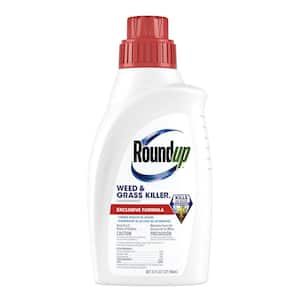
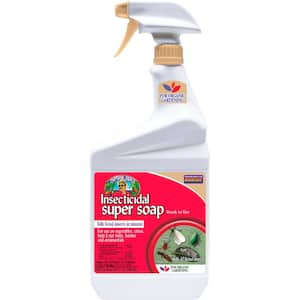
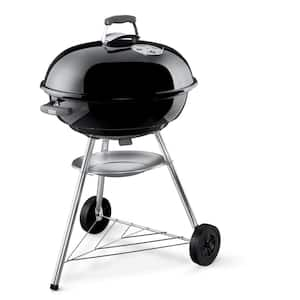
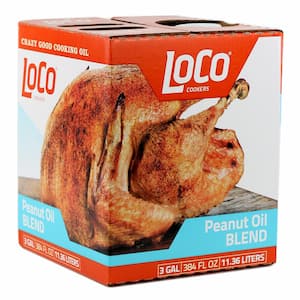
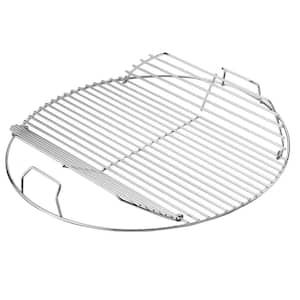
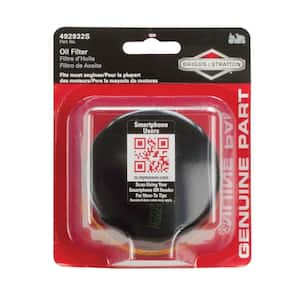
)
)
/17_514245_S_012_Product%20Image%20(square).jpg?im=Resize=(300,300))
;Resize=(300,300))
)
)
)
)
)
/2023_P2_Rain_Barrels_Product%20Image%20(square).jpg?im=Resize=(300,300))
)
;Resize=(300,300))
;Resize=(300,300))
;Resize=(300,300))
/12_SOIL_B_0420_Social%20media%20(square).jpg?im=Resize=(300,300))
;Resize=(300,300))
)
)
;Resize=(300,300))
;Resize=(300,300))
;Resize=(300,300))
;Resize=(300,300))
)
)
;Resize=(300,300))
;Resize=(300,300))
;Resize=(300,300))
;Resize=(300,300))
;Resize=(300,300))
)
/18Patio_Camden_Seagrass_5pcSeating_Planters_302468736_DTL3_L_Social%20media%20(square).jpg?im=Resize=(300,300))
;Resize=(300,300))
;Resize=(300,300))
;Resize=(300,300))
)
;Resize=(300,300))
;Resize=(300,300))
)
;Resize=(300,300))
)
.jpeg?im=Crop,rect=(363.69230769230774,1.2307692307692308,958.7692307692308,958.7692307692308);Resize=(300,300))
;Resize=(300,300))
)
;Resize=(300,300))
;Resize=(300,300))
)
;Resize=(300,300))
)
)
;Resize=(300,300))
;Resize=(300,300))
)
)
;Resize=(300,300))
)
;Resize=(300,300))
;Resize=(300,300))
)
)
;Resize=(300,300))
)
)
/Capello_Spring_Mum_10in_Social%20media%20(square).jpg?im=Resize=(300,300))
;Resize=(300,300))
)
)
;Resize=(300,300))
)
)
;Resize=(300,300))
)
)
;Resize=(300,300))
;Resize=(300,300))











































